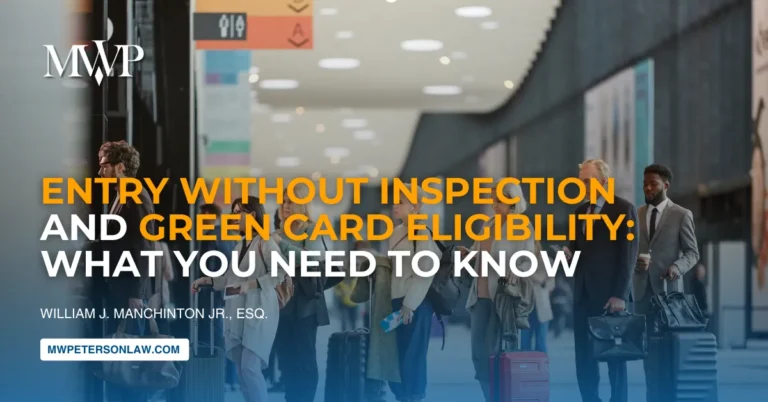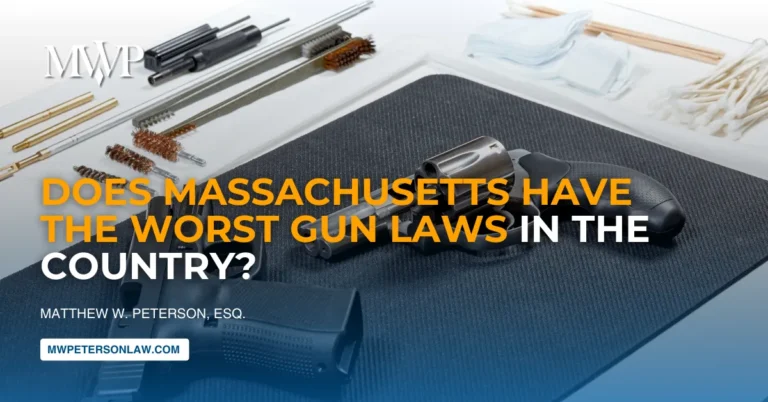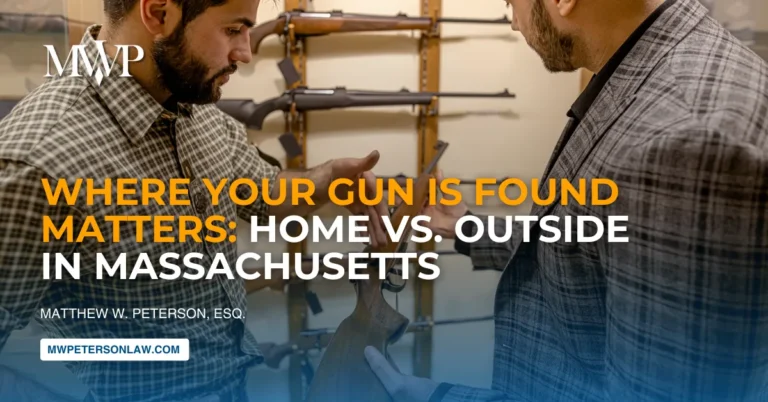New Massachusetts Gun Laws
As a firearms attorney, I understand how unsettling it can be for gun owners in Massachusetts to navigate the new and complex firearm laws. With the passage of An Act Modernizing Firearm Laws (H.4885) in July 2024, the landscape has significantly changed. The law introduces new restrictions, requirements, and regulations that affect everyone from lifelong gun owners to those looking to obtain their first License to Carry (LTC). Below is a breakdown of the most critical changes and how they could impact you.
New Requirements for Firearms Safety Classes
The law requires applicants for an LTC to complete a new training curriculum, including a written test and live fire component. This new curriculum has not been approved, and the law only exempts applicants before August 1 from the new law. However, it seems that this provision’s implementation has been delayed until October 2024.
Ban on Certain Firearms and Magazines
The new gun law prohibits firearms classified as “assault weapons” and restricts magazines to a maximum of 10 rounds unless they were manufactured before September 13, 1994. Enforcement of this restriction may be difficult due to the lack of serialization on older magazines.
No Requirement to Prove Operability in Criminal Cases
In criminal cases, the Commonwealth is no longer required to prove that the firearm was operable. Previously, to prove you guilty of unlawfully carrying a firearm, the Commonwealth would have to prove that at the time you had it, it was able to fire a bullet. Under the new MA gun laws, this is no longer required.
Ghost Guns Now Regulated
One of the significant changes in this new law is the regulation of “ghost guns” in Massachusetts. These are unserialized firearms that can be assembled from kits or parts without a background check. Under the new law, ghost guns are now subject to the same rules as any other firearm. This means that all firearms, including those that are homemade, must be serialized. The state has established a process for assigning serial numbers to existing homemade guns. If you currently own an untraceable firearm, this new regulation could have serious legal implications for you.
New Restrictions for Business Owners
If you’re a business owner, this law brings additional complications. You can no longer apply for an LTC in the town where your business is located. For non-resident business owners, this means acquiring a non-resident temporary license if you wish to possess a firearm within Massachusetts. Additionally, those firearms must be registered. If you are a business owner who carries a firearm for protection, this change adds another layer of regulation to your daily life.
Prohibition of Firearms Near Polling Places
The new gun law also prohibits the possession of firearms within 150 feet of any polling place entrance in Massachusetts. This change is particularly relevant during election seasons, as it limits where you can carry a firearm, even if you have a valid LTC. Violating this rule could result in severe legal penalties, so be sure to plan accordingly when heading to the polls.
Expansion of Extreme Risk Protection Orders (ERPOs)
Another significant change is the expansion of Extreme Risk Protection Orders (ERPOs) or “red flag law.” School administrators and licensed healthcare providers now have the authority to file ERPOs. Additionally, preemptive ERPOs can be filed against individuals who do not yet have an LTC but are perceived to be at risk of committing gun-related violence. If you find yourself the subject of an ERPO, even before obtaining a firearm, it is crucial to seek legal advice immediately.
Raising the Age for Semi-Automatic Rifle Ownership
The legal age for owning semi-automatic rifles in Massachusetts has been increased from 18 to 21 under this new gun law. This adjustment brings the ownership requirements for rifles in line with those for handguns. If you are under 21 and currently own a semi-automatic rifle, this new regulation could impact your ability to retain that firearm legally.
Additional Prohibitions: 258E Harassment Orders
The new law adds those subject to 258E harassment prevention orders to the list of prohibited persons who cannot possess firearms. This adds another dimension of complexity for anyone who has been issued such an order, potentially affecting their eligibility to carry or own firearms.
Clarification on Suitability for Firearm Licenses
The law affirms the old definition of “suitability” for granting firearms licenses. Suitability is defined as the likelihood that the applicant, if issued a permit, card, or license, might create a risk to public safety or pose a danger to themselves or others. This determination can be made based on “reliable, articulable, and credible information” and is based on a preponderance of the evidence. This broad language gives authorities more discretion in denying firearm licenses based on past behavior, even if no formal charges were ever filed.
Data Collection on Firearm Purchases and Crimes
The Department of Criminal Justice Information Services is now required to collect comprehensive data on firearm purchases, licensing, and firearm-related crimes. This move aims to improve law enforcement’s understanding of firearm trends, but also raises concerns about increased scrutiny of legal gun owners.
What You Should Do Next
With the passage of this new Massachusetts gun law, there are numerous ways gun owners can inadvertently find themselves in violation of state regulations. Whether you’re trying to navigate the complexities of ghost gun registration, facing an ERPO, or ensuring compliance with new LTC requirements, it’s essential to stay informed and proactive.
If you’re looking to apply for your LTC or need legal advice regarding your firearms rights under the new law, I am here to help. Contact me for a consultation. I can help review your application before you file it or on your eligibility for a gun license. Call or text me today at 617-295-7500.











